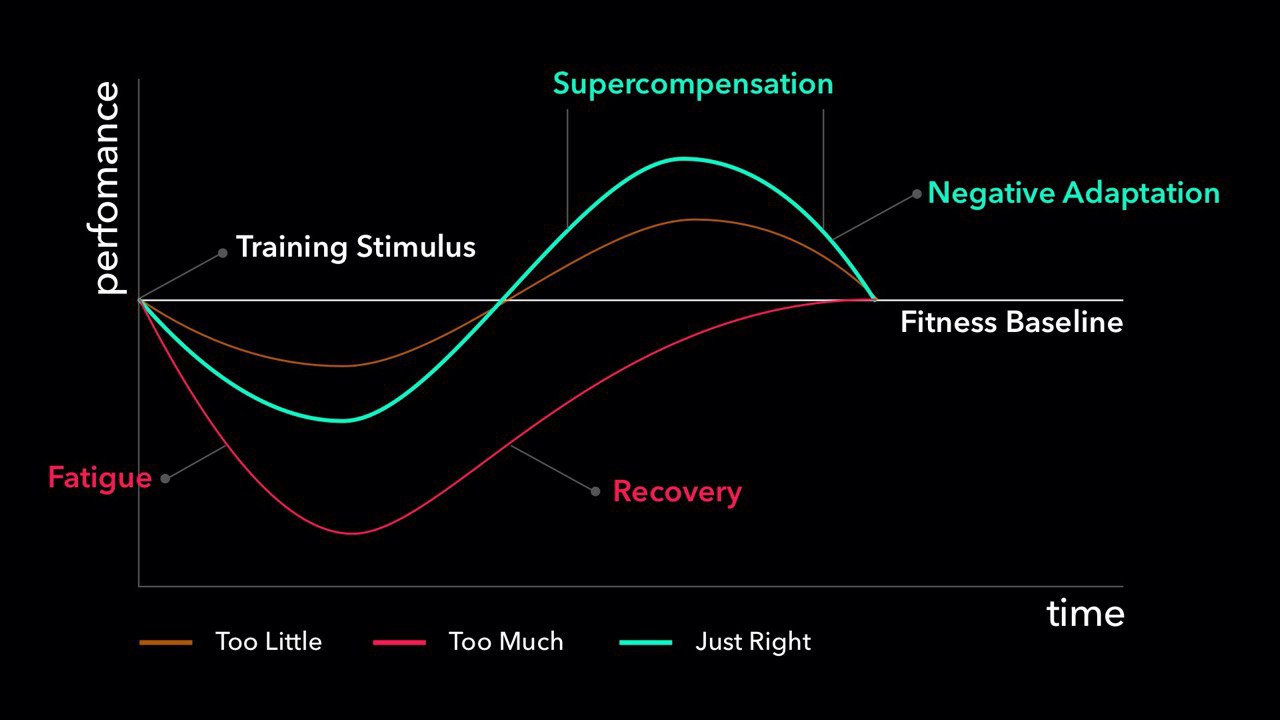deloads and keeping the flywheel spinning
Long term consistency trumps short term intensity
Bruce Lee
There is a concept in training called ‘periodisation’.

Simply put : You can’t keep adding 5lbs to the bar and expecting it to go up. You don’t make linear progress at a certain point. Therefore the ‘way’ you train becomes crucial.
You have to take regular ‘deload’ weeks where you reduce the CNS fatigue and stress, and allow the body to recover. In fitness, this is normally every 6-8 weeks depending on the program.
Therefore the trajectory of improvement then looks like this.

If you intend to train long term (which you should), then deload weeks are non-negotiable. All intermediate-advanced-elite athletes know this. Sub-maximal training is crucial to getting to that stage.
But the concept of deload weeks is generalisable to more than just fitness.
On an intellectual level, you can keep burning the candle at both ends. Short term intensity is required, but so is rest. This is why people ‘burn out’.
For ‘Type A’ people, putting the foot on the accelerator is easy. They’ve been doing it their whole lives. Intuitively it makes sense. More time, more work, more intensity means better results.
In the short term this is true. But if you are playing long term games, this is the wrong approach.
Sprint, Rest and Reassess
Progress in any endeavour is not linear. Train smart. Rest. Reassess and Sprint.
In ultra-long term endeavours - think mastery in a skill such as writing/programming/music. You want daily consistent work.
The author Murakami advises that you stop writing at the moment you know you could do more. Then the next day you are still energising to continue writing. Therefore the flywheel keeps on spinning.
TLDR: Submaximal training allows for consistent long term progress